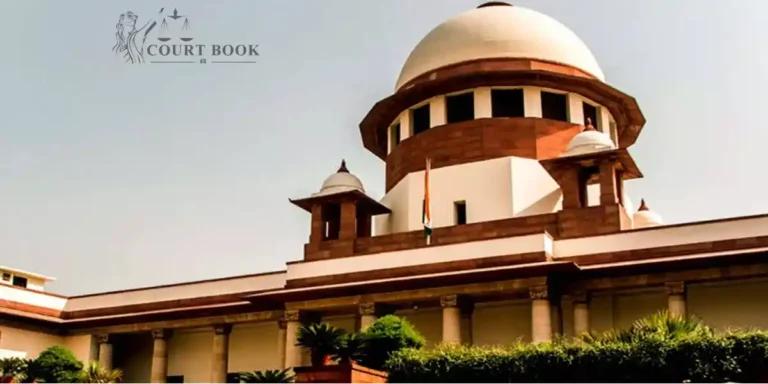The Supreme Court of India, on April 2, declined to issue directives to state governments to establish public libraries in rural areas. The court emphasized that fundamental necessities such as clean drinking water, quality education, and sanitation take precedence over setting up libraries. The bench, comprising Justice Surya Kant and Justice NK Singh, urged states to explore feasible solutions, including the use of Corporate Social Responsibility (CSR) funds to support library development.
During the hearing, Justice Surya Kant acknowledged that public libraries play a vital role in education and enrichment but questioned their relevance in an era dominated by mobile technology. He remarked:
"In today's India, all these oldies also—they will forget to smoke hukka but have a phone in their hands... Having a library is very good for their enrichment... but unfortunately, the mobiles and apps have taken over, they have hijacked!"
Read Also:- Supreme Court Questions Delay in Disqualification Petitions of BRS MLAs: "Should Court Tie Its Hands?"
When the counsel suggested integrating digital facilities into libraries, the bench pointed out that many villages still struggle with basic infrastructure like clean water, electricity, and education. Justice Surya Kant inquired whether any research had been conducted to assess the conditions of rural areas:
"First, we would like you to give us a list of the information on how clean the water is in villages, the health conditions, schools, availability of meals and teachers in schools. Has anybody done this exercise? ... This library issue can take a back seat. The most crucial issues in rural India today are—health, education, and hygienic conditions."
He further stated:
"If you really want to improve rural areas, you have to concentrate on that... Every day PILs are being filed on these three conditions."
Read Also:- Karnataka High Court Halts Bike Taxi Operations Pending Regulations
The bench also addressed the financial challenges faced by states in providing libraries. Justice Surya Kant noted:
"If you ask the states, the easy answer will be that they have financial constraints. So where are the funds going? They are going somewhere... Why cannot there be a dedicated allocation of 10-15% of state revenue for rural infrastructure development? The time has come where, in some appropriate case, we will have to intervene to ensure that at least 25% of funds are reserved for rural development—if we truly want a fully developed nation within a set timeframe."
The counsel highlighted that Nagaland, in its affidavit, stated that the central government had not allocated funds for public libraries. He argued that Article 243G of the Constitution allows state legislatures to empower panchayats to implement schemes for economic and social development.
However, Justice Surya Kant asserted that Article 21 (Right to Life and Personal Liberty) takes precedence over other considerations. He emphasized:
"Article 21 is the most important thing! Akhbaar padhke thoda pet bharjayega ...yesterday in some news item, some author had spoken, bache ne akhbaar uthakar khaaliya kyunki uspe kheer chappi hui thi....that is the ground reality."
(Translation: Would reading a newspaper fill one’s stomach? Yesterday, a news item mentioned that a hungry child ate a newspaper because it had a picture of kheer on it—that is the harsh reality.)
Ultimately, the Supreme Court declined to issue mandatory directions for setting up libraries, stating that it falls within the purview of state policy decisions. However, it urged state governments to explore innovative solutions, including utilizing CSR funds to support library development. The bench remarked:
"The setting up of a library is undoubtedly a laudable objective. It enables young children to learn about history, culture, constitutional values, principles, rights, and responsibilities as citizens."
Read Also:- Advocate Cannot Be Summoned as Witness or Forced to Disclose Confidential Information: Kerala HC
At the same time, the Court stressed the importance of prioritizing essential services:
"Equally important, however, are facilities for health, education, water, and sanitation. Prioritizing these resources is a matter of policy left to decision-makers. In the absence of relevant data, financial feasibility, and existing state commitments, the Court cannot determine which facilities should be prioritized over others."
Disposing of the petition, the Supreme Court encouraged states to take effective measures to address the lack of library facilities in rural areas. The bench particularly emphasized the role of digital platforms:
"The establishment of libraries will infuse democratic values, constitutional culture, and access to knowledge in inaccessible areas. We dispose of the petition by impressing upon state governments to look into these aspects and take necessary steps within their financial limits to address the issue of lack of libraries in rural places. We hope and trust that some effective steps—especially the promotion of e-libraries—would be initiated, for which even CSR can be explored by the states."
Case Details: Mundona Rural Development Foundation v. Union of India & Ors. | W.P.(C) No. 1428/2023














